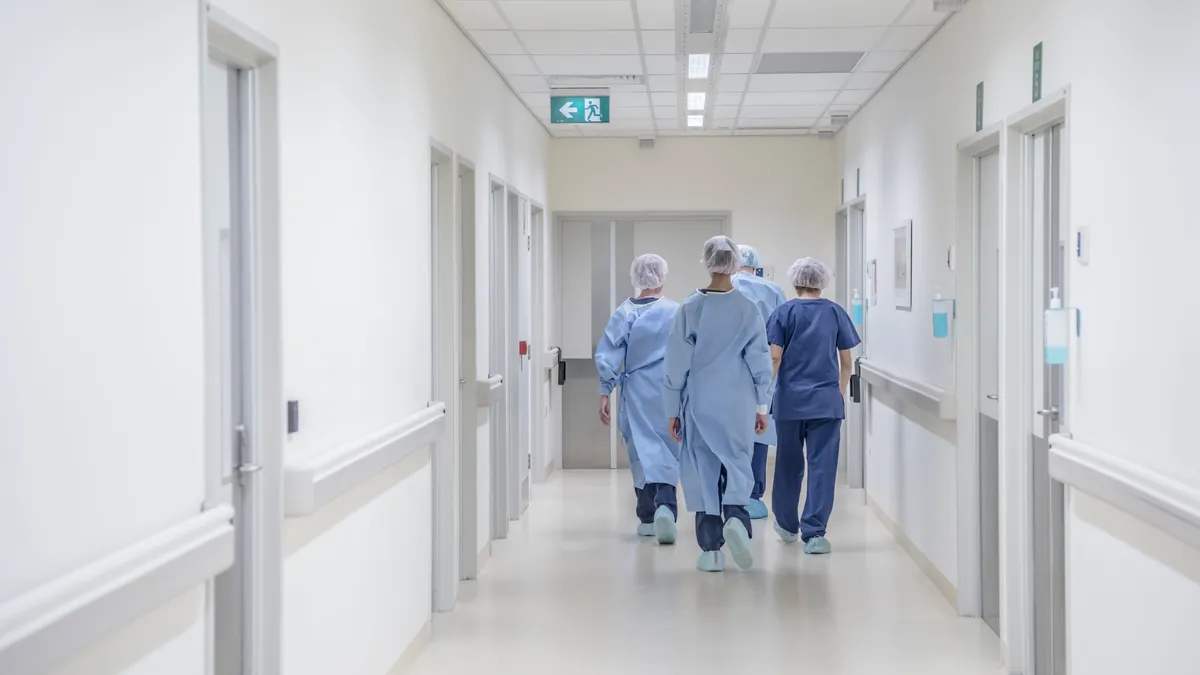Dive Brief:
- Many workers on the front lines of the national's COVID-19 response are immigrants, according to New American Economy Research Fund (NAERF) research released March 26.
- Immigrants account for more than 16% of all healthcare workers, and such individuals' presence is particularly high in the roles of home health aid (36.5%), psychiatrist (32%), physician (28.7%), personal care aide (25.1%) and nursing assistant (22%). NAERF, a bipartisan research and advocacy organization, noted that there are shortages for many of these roles across the country, particularly in rural areas. Female immigrants hold 1 in 5 nursing, psychiatric and home health aide positions. They also represent the same ratio among personal care aides and account for 1 in 8 registered nurses.
- In the related fields of biomedical and pharmaceutical manufacturing — critical industries for their role in producing medical equipment and medicine, respectively — immigrants make up nearly a quarter of all workers, NAERF found. Additionally, immigrants represent 18.2% of food delivery workers and 16.7% of grocery and supermarket workers, two jobs groups also commonly viewed as essential during novel coronavirus prevention measures.
Dive Insight:
A New York Times statistical analysis found that hospital workers are at the greatest risk in the U.S. workforce because "they can encounter diseases and infections daily and typically work in close proximity to one another and their patients." Personal care aides and home health aides are also among the most vulnerable.
Given the heightened risk, it's no surprise there are calls for increased protection and support for healthcare workers who are dealing with shortages of protective equipment. President Donald Trump declared a national emergency March 13 shortly after signing an executive order to improve the availability of respirators, though advocates insist more protection is needed.
The COVID-19 pandemic has spiked demand for doctors, nurses and certain specialists, with one hospital CFO saying in an analyst call that "aside from talking about ICU beds and ventilator capacity, our No. 1 concern is staff. We could have all the ventilators in the world, but we don't have respiratory therapists, and they're in very short supply." Some retirees and medical students have been authorized to work to help address personnel shortages.
Before the coronavirus outbreak, the Trump administration had a rocky relationship with immigration policy. Denial rates for H-1B skilled worker visas increased drastically, a sign that the impact of the administration's "Buy American and Hire American" order has been profound, with one attorney referring to it as "a step backwards" in a previous interview with HR Dive.
More recently, however, then-acting White House Chief of Staff Mick Mulvaney said "we need more immigrants," indicating a possible change of direction, a potential boon for employers given that demand for healthcare and food service workers is projected to soar in the coming years.













